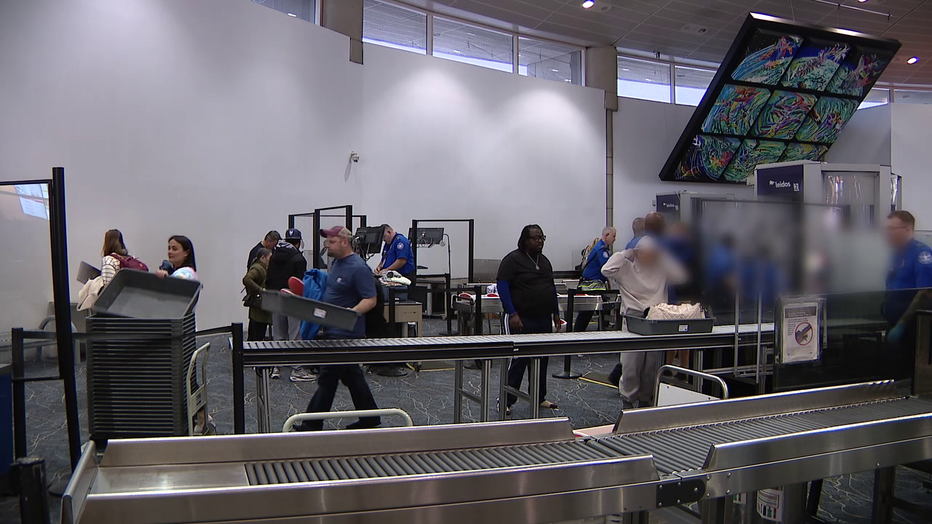Inside Tampa International's lost and found
TAMPA - TSA agent Nathaniel Bright's work is as straightforward as it is important.
"You see all these people, different backgrounds, different ages, different races, different cultures, kind of all come together to do that, to do this, you know, accomplish this mission," he said.
As a supervisor at one of Tampa International's security checkpoints, he and his teammates are tasked with keeping potential weapons off of planes.
"I can't even tell them how proud of them I am, because it would make me emotional," said Bright.
But if you give him a mic and something that is missing, that's where his hidden talent lies.
Every day, sometimes 10 times, and sometimes more, travelers visit his checkpoint and head to their planes without everything, from the annoying to lose - like water bottles - to the awful to lose - like duffel bags - to the impossible to leave home without - like a belt - and even the impossible to travel without - like an ID card.
"These dulcet tones haven't been able to lure them back over to the checkpoint (just yet)," he said.
READ: Plane landing on I-75 crashes into vehicle in Florida: Troopers
Each day, all the lost items are brought to the airport lost-and-found.
Credit cards, driver licenses, wallets and luggage.
If they're unclaimed after a month, they are sent to charities around Tampa Bay.

"Whether it's blankets and toys to the SPCA, or clothing for veterans, there are so many things here that are actually pretty nice and in good condition," said TPA spokesperson Emily Nipps.
With over 2,500 things a month lost airport wide, and 11 million passengers going through TPA TSA each year, agents have all kinds of war stories, like when a famous rapper came barreling back to the checkpoint to get a tray full of gold chains.
"We paged his real name over the loudspeaker. But he came running back. He was high-fiving everybody."
But when things are at stake that are even more important than gold, like medicine or CPAP machines or dentures, the job of reuniting passengers with their misplaced is as important as piloting itself.
"Sometimes we've been able to get with the airline to figure out where this person is going, and they give them like a little message when they get there," said Bright


